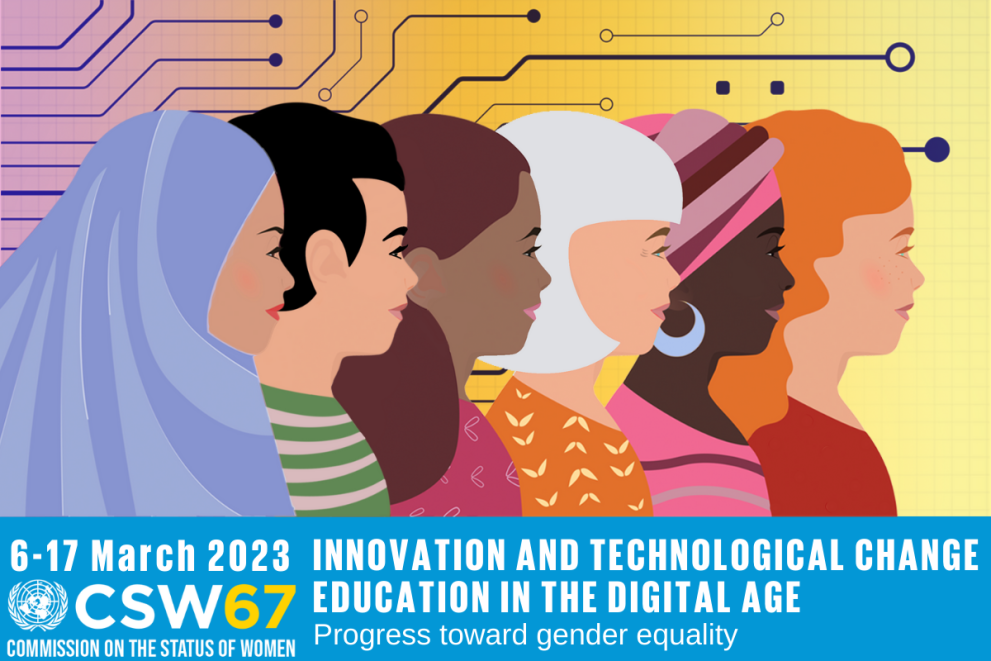
Together with Ministers and civil society representatives from over 157 countries, Vice-President Jourova attended this year’s session, highlighting the significance of digital skills, especially with the upcoming launch of the European Year of Skills. The session prominently discussed digital skills and their role in achieving gender equality.
The EU priorities on skills for the 2023 UN Commission on the Status of Women
At this session, the EU prioritised addressing the persistent gender gap in digital access and skills. The European Commission aims to dismantle gender-based segregation in digital fields, bridge the gender divide, and enhance women's education access. Encouraging women in STEM, combating gender stereotypes, and countering online gender-based violence were focal points. Aligned with these goals, the EU's digital strategy aims for gender balance in the sector, including 80% of the population with basic digital skills by 2030. The Digital Education Action Plan 2021-2027 aims to enhance women's participation in digital education, complemented by funding from the Digital Europe Programme to foster girls' and women's digital skills. The Women in Digital Scoreboard within the Digital Economy and Society Index since 2019 tracks progress toward rectifying the digital gender gap.
Outcomes of the session: What is in it for skills?
The UN Commission agreed on a list of actions to be taken. Three of them had a skills-oriented approach:
-
Prioritising Digital Equity: The actions included embedding gender considerations in laws, enhancing digital literacy, investing in education, and empowering vulnerable populations.
-
Fostering Gender-Responsive Education: The plan involved comprehensive education, equitable training, teacher preparation, child-centred policies, and integration of digital literacy.
-
Preventing and Eliminating Violence: Strengthening capacity, support, and coordination to counter technology-amplified violence were addressed.
The 67th session of the UN Commission on the Status of Women underscored the importance of digital skills in achieving gender equality and women's empowerment, with specific action steps aimed at addressing various facets of this critical agenda. The commitments made by the UN Member States at this session will go in parallel and can inspire and be inspired by EU action.
Background
The UN Commission approved 89 conclusions (available here), and 10 of them have a strong emphasis on promoting digital skills for women and girls. These conclusions address various aspects, including concerns over unequal digital access due to gender stereotypes and systemic barriers, the importance of digital equity, technical and vocational training to bridge the gender gap in digital literacy, combatting online harm through digital literacy, empowering girls' digital rights and safeguarding their online experiences, ensuring inclusive digital learning infrastructure in education, using science and technology to empower women in entrepreneurship and economic participation, addressing the digital skills gap and advocating for inclusivity, the relationship between social protection, digital literacy, and gender equality, and the specific challenges faced by older women in technology, emphasizing investments in their digital skills and affordable access to technology-enabled services.
Details
- Publication date
- 9 November 2023
- Author
- Directorate-General for Employment, Social Affairs and Inclusion
